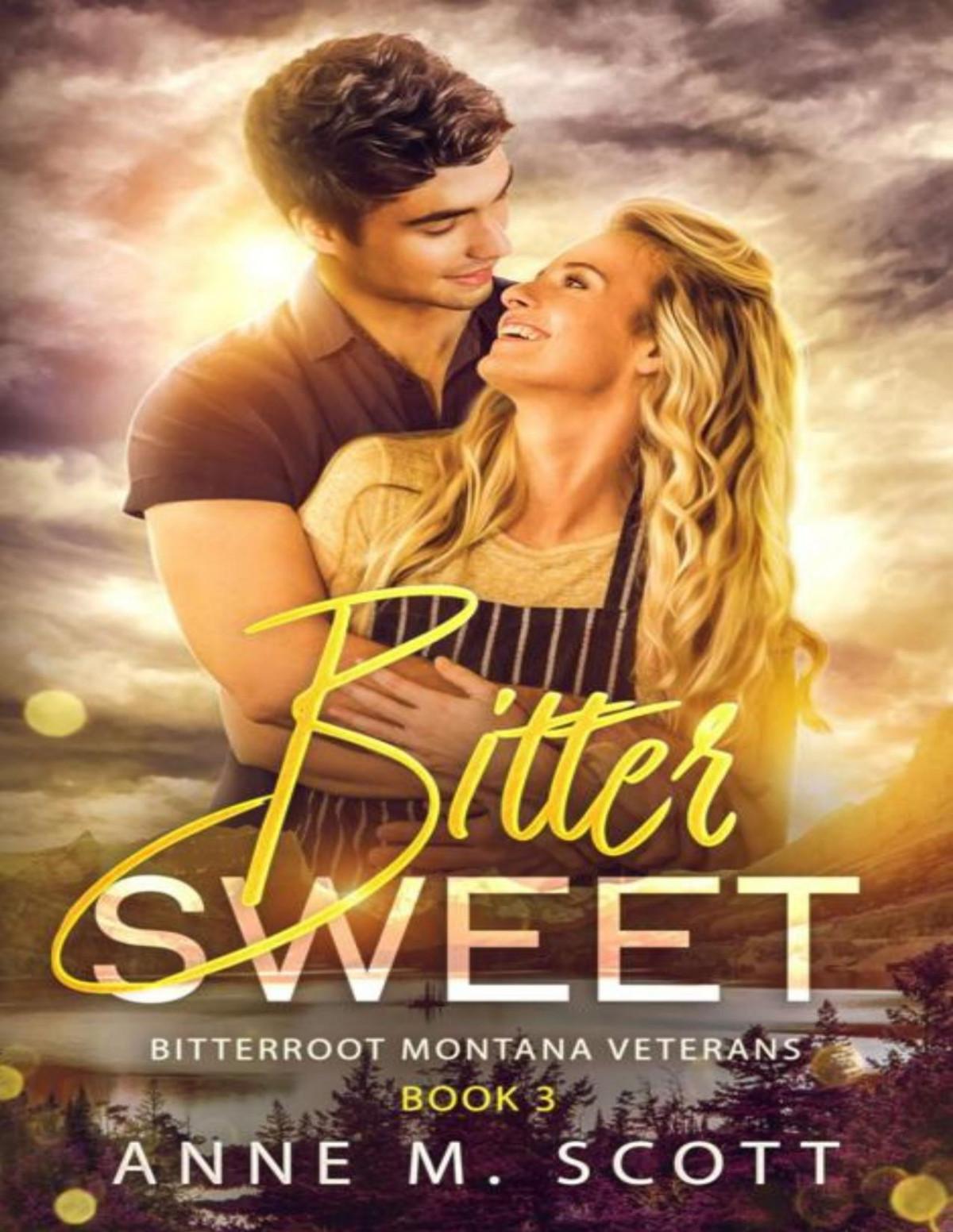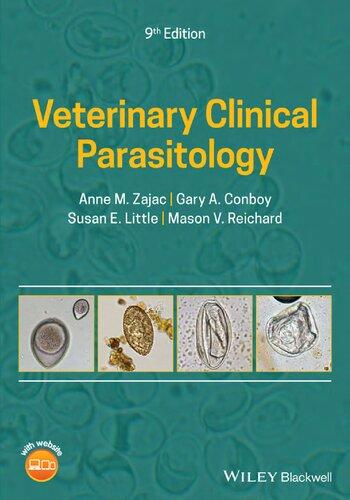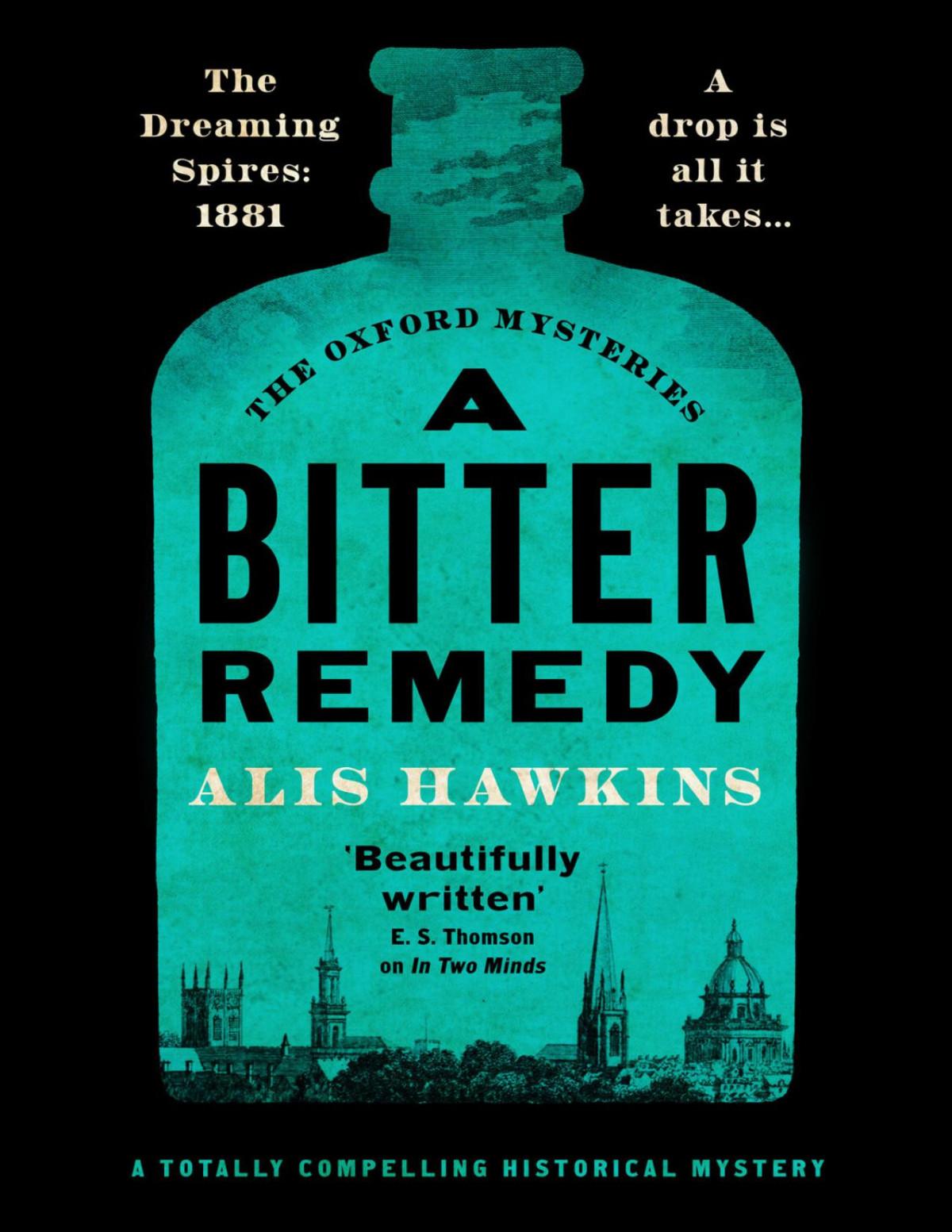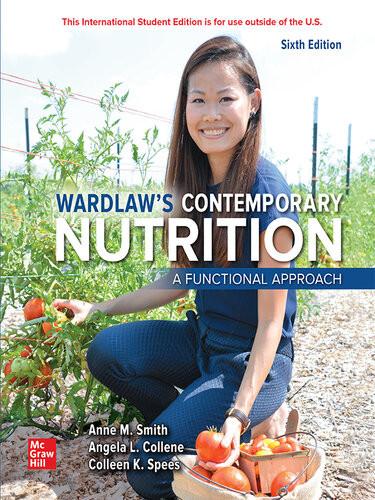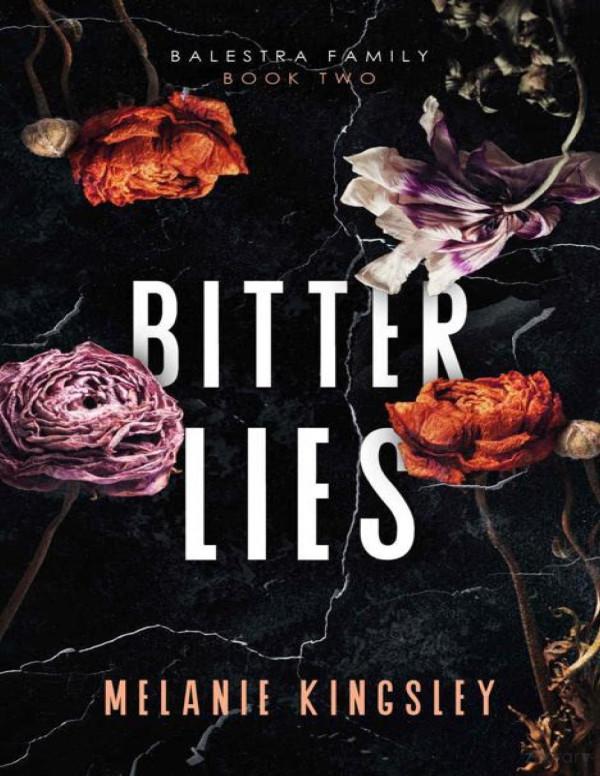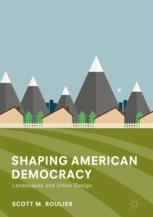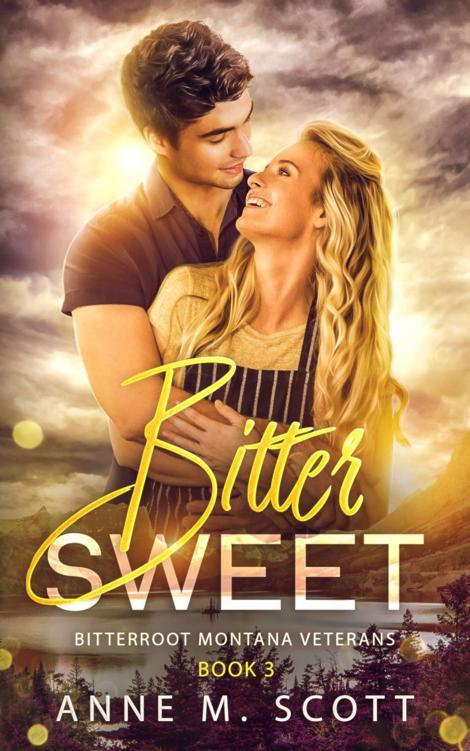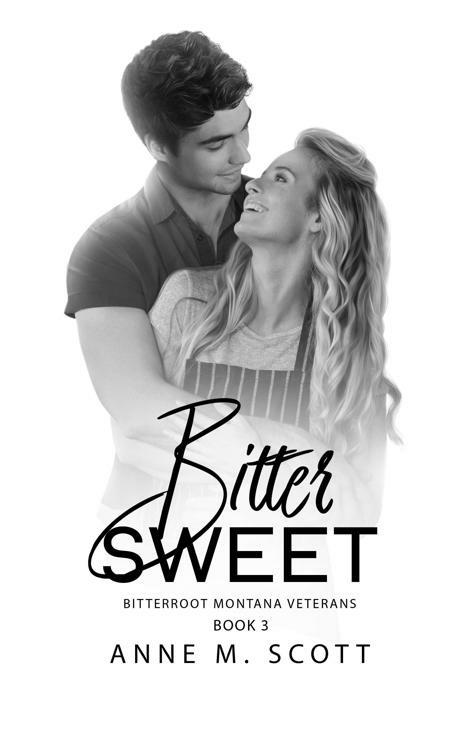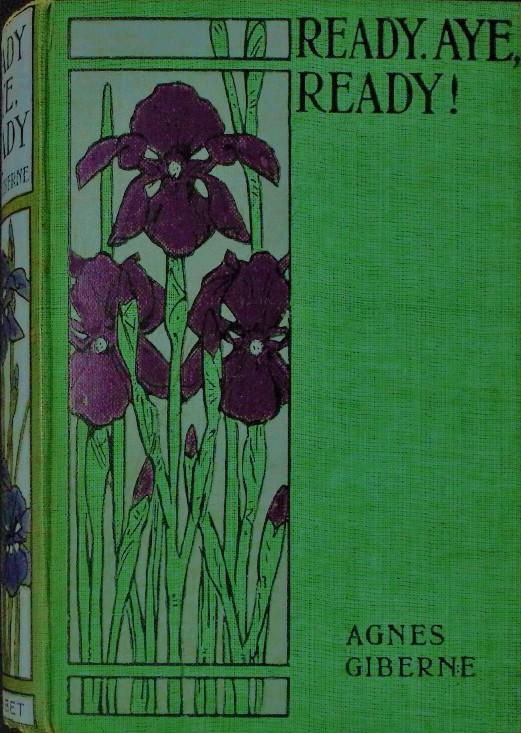Chapter1
“Andthat’sourspecialsfortomorrow!We’llbeopenatseven,andI’ll haveprepackedboxesreadytoflyoutthedoor.”Shewiggledherfingers.“Seeyouthen!”Sheclickedthevideooff,reviewed it,addedcaptions,hashtagsandmusic,thenpostedittotheDeb’sBakerywebsiteandsocialmediaprofiles,pluscommunity pages.Herlastchoredone,sheturnedoffthesigninthefrontwindowofherbakery,andthenroseonhertiptoesandreached forthesky,herbackpoppingandcracking Atamerefivefoottwo,shedidn’thaveaprayerofreachingtheceiling,letalone thesky.
Crossingthesmalldiningareainfrontofthecounter,shecheckedforstraycrumbsornapkins,butJeff,hercleanupperson, wasmeticulous.Behindthebakerycounter,shepulledmostly-emptytraysoutoftheglassfrontdisplaycases.Ifonlyshecould findmorepeoplewithJeff’sdedication Heremployeeswereniceenough,buthadnorealloveforbaking;theyweretherefor thepaycheckonly.Whichwouldbefine,ifshecouldaffordtopaythemmorehours.Butshewasstuckinwhathersmall businessadvisorcalledthemuddymiddle.Shehadmorebusinessthanshecouldhandle,butnotenoughtoaffordfulltime workerswithbenefitsandinsurance,nomatterhowmuchshewantedto.
Afterwrappingthefewleftoversinplastic,sheplacedthemintheday-oldsalesbasket Thoseleftfromyesterdayhad alreadygonetothefoodpantry,alongwithloavesoffreshbread.She’dliketosendmoretothemandthefamilyshelter,too, butshecouldn’t.
MarcusBank’sPresident,SharleneMurphy,hadstronglysuggestedDebacceptinvestors.She’dsenteagercandidatesready toshovelcapitalintoDeb’sBakery Aninfluxofcashwouldallowhertohirefulltimeemployees,butatthecostoflosing control.Themenshe’dinterviewedatMrs.Murphy’srequest andtheywerealloldermen tookalookatherbalancesheet andtoldhertobuycheaperingredients,getridofJeff,andcontractacommercialbakerytomakehermostpopularcupcakes withpreservatives,thendistributetogrocerystores.
Debdidn’twanttodoanyofthat Shewantedtobake,designnewcreations,andmakehercustomershappy Cheaper ingredientsandpreservatives requiredifshewantedtodistributehergoodsmorethanacoupleofhoursaway changedthe tasteandtexturetoomuch.Besides,thereweremorethanenoughcheapcupcakesinstoresalready.Highqualitylocalgoods kepthercustomerscomingback.Plus,goingcommercialmeantshuttingdownherdiningarea,andshelikedtalkingto customers
Evenifsomeofthosecustomerswereapain,likeCharles“Chaz”Custandhishorrible,butwealthyandinfluentialmother Butshe’dtaketheCustsanydayoverthemostrecentso-calledinvestorsSharleneMurphysentherway.
Roughmeninboxysuits,withwaryglancesonenteringthebakery,theyreekedofcologneandgunpowder.OnceRyan,Erin’s fiancé,pointedoutthesigns,shecouldspotthebulgeofconcealedpistolsundertheirarmsorattheirwaists Thesemenwere demandingandrude,too,pushinginfrontofcustomersandpracticallyshoutingthatMarcusBanksentthemtoinvest,andnot takingnoforananswer.She’dhadtothreatentocallthecopstwice.Thelastthreeinvestorshadheavyaccentsaswell;Nadia, oneofherregulars,toldhertheyspokelikeBratva theRussianmob andshecouldn’tcomeintothebakeryanymore.She boughtcupcakesattheSaturdayFarmer’sMarketwhenDebopened,thenscurriedaway
Afterthelastuninvitedmobstermadeafussonabusymorning,DebhadSamKerr,herattorneyandotherbestfriend,senda cease-and-desistlettertothebank,statingformallythatshewasnotinterestedininvestorsorfranchising.Ms.Murphyhad stormedinthenextday,hernormallycalm,palewhitefaceflushedandglaring,accusingDebofbackstabbing,underhanded behaviorandtryingtogetherfired Debhadrepliedcalmly,remindingSharlenethatshe’dcalled,emailed,andsentpersonal letters,andyet,moreso-calledinvestorskeptshowingupandattemptingtointimidateherandhercustomers Debhadanotherreasonfortakingthenuclearoption;theidiot“investors”attemptingtointimidateherdidn’tunderstandthe peopleofMarcus,Montana.Atleasthalfofhercustomerslegallycarriedfirearms.Thelastthingsheneededwasawildwest
shootoutinhershop Filingthatinsuranceclaimwouldprobablygetherdroppedastoobigarisk,andinsuringabakerywas difficultenoughalready.
“Hey,Deb,areyouhere?”Erin’svoicerangoverthehumofcoolingfans.
“Upfront!”Shestackedthedisplaytraysandcarriedthemtothesinks.Hernightworker,astudentatthelocalcommunity college,wouldcleanthem,andthenextday’sgoodswerereadyfortomorrow’ssalesoncoveredtraysintheback
Erin’sbrightredhairappearedbetweentheracksofcupcakes,cookies,andbread,thensheleanedagainstthesinknextto Deb.“Itsmellsamazinginhere.”
Debchuckled.“Youalwayssaythat.”
“AndIalwaysmeanit Youarethesuperheroofbakedgoods”ErinpointedherelbowatDeb,agestureleftoverfromher daysintheAirForce,wherepointingwithafingerwasn’tpoliteforsomeoddreason.
Debputherhandsonherhips.“That’sme,CupcakeWoman!”
Erinlaughed.“Funnyeverytime.”Shesobered.“Howareyoudoingaftermymotherwent‘TerroroftheTown’onyou?Any fallout?”
Shegrimaced.“IgotanofficialletterbackthroughSam,statingmywisheswouldbefollowed,butthatmyloanwasunder review.”Otherthanherfirstyear,she’dmadeeverypaymentontime,andpaidextraontheoriginalamountduringgood months.
“Idon’tknowwhat’sgottenintoherlately”Erinsighed “First,shetriesreallyhardtosetmeupwithslimyChazCust,then shealienatesmeandRyanpublicly,andshesucksuptoherwealthycustomersinallkindsofweirdways.Nowshe’ssending mobsterstoyourdoor.I’mafraidshe’sgottenintosomethingreally,reallybad,andcan’tfindawayout.”Sheshookherhead, herexpressionsad.“Ihatetosayit,butI’mgladwetookWiz’swarningsseriouslyandopenedaccountsatotherbanks.Ican’t trustmyownmotheranymore”
“I’veopenednewaccounts,too,butIreallydon’twanttogothroughthehassleofgettinganewbusinessloan.”Thatwould taketimeandeffort,andshewasshortonbothalready.
“Meeither,butmyloanandatinybusinessaccountareallIhaveleftatMarcusBank.Anothergoodyear,andwe’llbepaid off”Eringrinned “Andspeakingofbusiness,withRyandownrange,Ineedtogetbacktomine Myboxesareintheirusual places?”
Debgrinned.“Sureare.AndIputaspecialpresentinthereforyouandyoursnugglestud.” Erin’sexpressionturneddreamy.“He’scominghomelatetonight,andIcanhardlywait.”
“Ibet”Debwaggledherbrowsandgrinned,butcouldn’thelpthejealousyspearingherheart Ifonlyshecouldfindaguy likeRyan Herfirstmarriagehadbeenatotaldisaster;they’dbothbeentooyoung,andshe’dbeenblindlystupid,too Afterher sisterKimmetandmarriedNicAcer,Debhadhopedshe’dhaveachancewithNic’sbrother,Michael.Kimevensuggestedthe twoofthemdate,butMichaelhadscoffed,claimingtheideawasridiculous.Hiswordshadstabbedherintheheart,but stiffenedherresolve Nomanwouldevermakeherfeellessthanenougheveragain;she’dhadenoughofthatwithherfirst marriage
DebstillusedAcerHomeRepairwhensheneededhelpwithherbakery,butshecalledNicdirectly.BothNicandKimtold herthatMichaelstillstruggledtoaccepthismedicalreleasefromtheArmyanddealwithhiscontinuinghealthissuesdespite creatinganextremelysuccessfulbusiness
“Speakingofstuds,didyouknowMichaelAcerwasinLouisianahelpingwiththehurricanecleanupatthesametimeas Ryan?”Erinraisedherbrows.
“No,really?”Michaelhadseemedtotallyfocusedonhisbusinessandhewasjustplaingrumpy Volunteeringhalfwayacross thecountryseemedoutofcharacter.Butshedidn’tknowhimthatwell he’dmadesureofthat. Erinshowedheraphotoonherphone.“Yep.RyanhadnoideaMichaelwasaTeamRubiconmemberuntilhewasassigned toMichael’steamtomuckoutafloodvictim’shouse.Sincehe’sacontractor,theymadeMichaelateamleaderimmediately.
Ryansaidhedidagreatjob”ThephotoshowedagrinningRyanandagrimacingMichael,thetwooftheminmud-covered whiteplasticsuits,carryingabatteredwhitebathtub.Despitehavingamechanicalgripperinsteadofalefthand,Ryandidn’t seemtohaveanytroublewithhisendoftheload.Michaellookedmorepained.“They’reonthesameflightbacklatetonight, though,soI’mgivingMichaelaridehome.”
“I’msureKimandNicappreciatethat”Debpretendedtopout “ButnowIwon’tgettowatchherkids”Isabellaand Sophia,herniecesfromKim’sequallydisastrousfirstmarriage,werethejoyofDeb’slife.Butshehadatonofcupcakesto decoratefortheFarmer’sMarket,andthetwogirlsmadethatdifficult.Ifshewassmart,shewouldclosetheshopon Saturdays,andconcentrateonthemarket,butherregularswouldwhine.
Erinchuckled “Thegirlsarecute,butI’msureyou’llhavemoreopportunities” “Guaranteed.”Thebackdoorbuzzermadeherjump.“Wonderwhothatis?”
Erinfollowedhertothedoor,pickingupherboxesontheway.“Youdon’thaveafternoondeliveries?” “Rarely.Almosteverythingcomesinthemorning.”Debopenedthebackdoor,revealingaharried-lookingFedExworker. “CanIhelpyou?”
Hethrustaflatwhitecardboardenvelopewithhisblackhandheldontopather.“Ifyou’reDeborahBoulanger,Ihavealetter foryou,anditrequiresasignature.”Hepointedatthescreenonthehandheld.
Suspectingshe’dratherpickuparattlesnake,Debputherhandsbehindherback.“Who'sitfrom?” Theguyturnedthehandheldaround “GeorgeFranks”
“Nope.Senditback.”She’dratherpickupadoublebatchofbreaddoughwithoutyeast andthatstuffwasheavy,bulkyand awkward.Shepulledherphonefromherpocketandsnappedapictureoftheenvelopeandhandheld. “Yousure?”Theman’seyebrowscrinkled.
Debpointedathishandheldabovethescreen “Yes Lookatthesender’saddress” “DeerLodge,Prisonernum oh Gotit”Hepulledoutthestylusandtapped “Refused Haveaniceday” “Youtoo.”Theywatchedthebigtruckdriveaway. Erinwalkedtohersilverhotrod,Smoky,andopenedthetrunk.“Doesthathappenoften?”
Debgrimaced “Oftenenough,althoughthisisthefirsttimehe’ssentsomethingbyacommercialcarrier He'salwaystrying togetmoneyoutofme Healmostruinedmylifethefirsttimearound Hissecondandthirdtriesweren’tanybetter,andnow I’mdone.”Afterthefirstyear,she’dwritten“ReturntoSender”oneverysingleletter.Asmuchasshewantedchildren,she wasthankfultheyhadn’thadany,becausethenshe’dbetiedtotheidiotforlife. Erinnoddedfirmly “Goodforyou DoesSamknowthisisgoingon?” Debshrugged “Yeah There'snotmucheitherofuscandountilhecomesupforparole Withanyluckatall,hisrecordof harassmentwillkeephiminprison.”
“Here'shoping.”Erinfrownedatthedustleftbythespeedingtruck. EvenifFranksgotout,hewouldn’tbeDeb’sproblem,andtherewasnosenseinworryingaboutit Besides,Erinhadbetter thingstodo “Havefuntonight!”
Erinlaughed,blushing.“Thanks.Butletmeknowifthere'ssomethingIcanhelpyouwith,whetherthat’sFranksormy mother.”
Debappreciatedtheoffer,evenifErincouldn’tdoanything “Thanks,Erin”Theyhuggedandhermusclecarrumbledaway Debreturnedtoherbakeryandthehundredsofcupcakeswaiting.Erinwassoluckytofindtruelove,twice.Abitterperson wouldbelieveitwasn’tfair,butDebknewbetter.Lovegrewslowlybetweentwopeople,withmutualcareandtrust,not instantattraction,desperationorprettywords.Therightpersonwouldcomealongsomeday,andhe’dbeworththewait. Despiteherpeptalk,theimageofamud-spattered,grimacing,darkhairedmanlingered
READY, AYE READY!
CHAPTER I.
A TOWN COTTAGE.
"AND they call this 'Woodbine Cottage'!" said Susan Dunn, gazing out upon a paved street, where several unwashed children were disporting themselves in a gutter.
She looked dusty and unhappy, and she spoke disconsolately,—all three things rare with Susan Dunn, for a neater and brighter and more smiling little roundabout of a woman could in general be nowhere found.
The cottage wore an air of confusion. A damp floor told of recent scrubbing, as also did pail and soap, not to speak of Mrs. Dunn's own rolled-up sleeves and bare arms.
In one corner stood a pile of chairs: in another a small wooden cupboard. An empty book-case lay on the table, and through the open door might be seen a folded carpet, waiting for admission.
Side by side with the book-case, on the round table, sat cross-legged a little girl, about seven years old, contemplating the scene with sober eyes. She had plainly climbed there to be out of the way.
There had been a family flitting from an old home to a new. No unusual event this, in the lives of many men and
women, but very unusual in the lives of Richard and Susan Dunn.
For during more than fifteen years Dunn had worked as a regularly attached labourer, under Messrs. Horry, Builders, &c.; and not merely as a labourer, but as a clever and skilful "handy man," though, unhappily for himself, not as a skilled artisan. A widowed mother had been unable to afford the seven years' apprenticeship in those days requisite; and Richard Dunn's abilities were thereby handicapped through his after life.
For fifteen years they had known no change; and now suddenly a change had become necessary. Times were bad for business men, and Dunn's employers had failed. Thereby many working-men were cast adrift, and compelled to flit elsewhere in search of employment.
Dunn found what he needed, with less difficulty than he had expected. But he had to quit the pretty cottage and well-cultivated garden-slip which had long been the pride of his heart; to say good-bye to friends of many years' standing; and to find himself fresh quarters at Littleburgh.
"Woodbine Cottage" had sounded hopeful, when first he was advised to take a look at it. Dunn soon found, however, that dreams of country prettiness and twining creepers must be put aside.
Littleburgh was a bustling manufacturing town, of perhaps some nine or ten thousand inhabitants, and, viewed from a money point of view, it might be regarded as a very thriving place. There were cloth-factories and other factories, some of the former being worked almost entirely by women. Fresh houses and streets were being run up in
all directions: so the builders were just then having a fairly good time of it. Of course rents were proportionately dear.
The town lay in a flat unbeautiful neighbourhood; very different from the fair and hilly landscape the Dunns were used to look upon. Long rows of small red or white houses, as much alike one to another as a supply of pill-boxes, stretched away to the east and south; and beyond them lay wide brick-fields, with a kiln here and there.
"Woodbine Cottage" stood exactly in the middle of one such row. It was flanked by "Rose Cottage" and "Myrtle Cottage." But no roses, myrtles, or woodbine grew anywhere near.
The cottage contained four rooms, two below and two above; so it did well enough for a small family as to space. It opened straight upon the pavement, without an inch of garden in front, and with only a minute yard behind. No doubt the Dunns were well off to have so much. Some cottages in Littleburgh could boast no back yard at all. Still —when they should think of the garden they had left, the pinks and sweet-williams, the roses and geraniums, cannot we imagine how they would feel?
They had arrived quite early that morning, and Dunn had immediately gone straight off to his new work. He was not a man to waste one day without necessity.
For hours since, Susan and her eldest girl, Nancy, had been scrubbing and scouring. The bedrooms and the kitchen were now almost in order. Only the little parlour remained. Susan was bent upon getting that straight too, before her husband should come in.
"Just to make him feel home-like," she said once or twice.
But Susan was very tired, and her back ached. They had started early by train, and she had been up late the night before. So at length she stood still for a minute to rest, gazing out upon the street, and then it was that the words escaped her lips,—
"They call this 'Woodbine Cottage!'"
"It isn't so pretty as home, mother," a sedate small voice said, and the little maiden on the table folded her hands.
"Pretty! There isn't a scrap of woodbine anywhere," said Susan.
"Won't father get some?"
"It wouldn't grow here, if he did, I expect."
"Won't father get some nice garden-mould, mother?"
Susan shook her head. "I don't know what he'll do yet, child. We've got to make the best of things—somehow."
Then she fell to her work anew. The boards were getting dry, and soon it was time to lay the carpet down. The elder girl, Nancy, was upstairs, finishing the bedrooms; and the boy, Dick, had gone to assist. So Susie climbed off the table, and offered her tiny help. It was little, if anything, that she could really do; yet Susan would not spurn that little or nothing. For the child wanted to be useful, and that was good both for child and mother. So Susan had often said.
"Pull harder, Susie. It is not straight yet," Susan said encouragingly.
All at once a stronger hand grasped Susie's corner, and in a trice the matter was accomplished. Susan said, "Why, Richard!" and looked up.
No, not Richard Dunn. A stout motherly woman was raising herself erect.
"That was what you wanted, wasn't it?" she said. "So you've only just come?"
Susan answered civilly but coldly. She did not wish to plunge into fresh acquaintances, without knowing something first of the people around. Like a wise mother, she had a great notion of choosing good and desirable companions for her children.
But the new-comer, smiling good-humouredly, seemed unconscious of her coldness.
"Now, I suppose you'll put the cupboard into that recess. It'll just fit there, if I'm not mistaken. What a handsome bit of furniture it is! And that clock has the look of something uncommon. Old, isn't it?"
"Yes,—it came from Holland. It's more than a hundred years old," said Susan.
"Wouldn't Mr. Rawdon give something to have it! He's a wonderful fancier of old furniture and the like!"
Mr. Rawdon was Richard Dunn's new employer; but Susan said nothing. She could hardly refuse, however, the kindly offered help, and for a few minutes the two worked hard.
"That looks well!" the other said presently. "Is this little one your only child? Pretty," was murmured in a lower key.
"No, I've two others."
"Older or younger?"
"Dick is one year older; and Nancy is sixteen."
"Sixteen!"
The stout woman paused, looked at Susan, looked out of the window, and then once more looked back at Susan.
"I don't know you yet, my dear," she said. "I don't know whether you're one that minds a word of advice. I shouldn't wonder if you'll count it an impertinent interference. Maybe I should in your place. For I'm a stranger to you,—and if I say I'm Mrs. Mason from over the way, you'll not be much the wiser. But there's one thing I should like to say to you, now you've just come here, and don't know the ways of the place nor the people,—if you'll not take it ill, that's to say?"
Susan simply answered,—"No."
Mrs. Mason's face broke into a smile.
"I like that," she said. "I like a woman that don't pour out a rush of words, like water gallopading out of a spout. 'No' was enough: and you're right to say just that, and not a word more."
Susan privately thought that Mrs. Mason was admiring a virtue to which she had not herself attained.
"Well, but what I was going to say," resumed the other, "what I was going to say to you, was this: If you can help it, don't you let that girl of yours work in the factories!"
"My Nancy work in the factory!" Susan's comely face lighted up with a hot flush. "My Nancy! Thank you, Mrs. Mason. No, I'm not angry, indeed—but it's such an idea as never came into my head before!"
Susan stopped, and suddenly cooled down.
"But there! You don't know my Nannie yet," she said quietly.
"No, I don't, Mrs. Dunn."
"Nor her father—nor me!"
Mrs. Mason's face broke into a genial smile.
"I think I'm getting to know you fast, Mrs. Dunn," she said, "and the faster the better. I'm sorry I said a word about the factories, as it seems to put you out,—but, dear me, if you knew what I know! The young mothers that are out all day, working, and leaving their little ones with none to care for them! And the girls of fifteen and sixteen, who do for themselves, and won't brook a word of control from father nor mother nor anybody! Not but what there's good girls among them, and good women too. But I always do say there's a lot of temptation, specially for young things. And if I was you, I wouldn't send a girl of mine there without I was downright obliged. I wouldn't, Mrs. Dunn!"
RICHARD DUNN was walking briskly homeward, half-anhour later, with a young man by his side.
He did not look depressed, though the change in his home and circumstances had been to him, as to Susan, no slight trouble. Dunn was a man of cheerful spirit; and the cheerfulness could be seen in his very air. He carried himself with an alert vigour, usually more characteristic of the artisan than of the labourer. In truth, Dunn occupied a position decidedly superior to that of the ordinary labourer, though of course inferior to that of the journeyman. He had a peculiar knack of picking up knowledge in all directions, and was actually capable of "handling the tools" in an emergency, though not usually permitted to exercise this feat in the trade.
Besides being thoroughly "handy" in his ordinary work, Dunn was something of a scholar. He read much, and thought over what he read. But Dunn was the last man ever to make a boast of these acquirements. People were often long in finding out his intelligence and capabilities.
Not always, however. For the young fellow by his side, Archibald Stuart by name, a last-year apprentice in the workshop of Mr. Rawdon, had already scented out "something uncommon" in the new workman. Dunn had known Archibald Stuart's father many years before, and this fact drew the two together. Moreover, Archibald's homeward road lay past Woodbine Cottage. Halfway thither, he overtook Dunn, and remained with him.
"You'll tell your mother we're here," Dunn said, as they drew near the end of their walk. "Dear me, I remember her well as a fine tall lass! There wasn't a handsomer girl about,
nor one that held her head higher. Your father did think a deal of her, to be sure."
"She has been a good mother to me," Archibald said. He was a fine tall young fellow himself, doubtless taking after his mother.
"And you're her only one? No brothers nor sisters?"
"None," Archibald said. "Only mother and me."
Dunn stood still. "I won't ask you in to-day," he said. "We're all in a mess—only come this morning. But we shall see you here soon; and you: mother too."
"I hope so," Archibald answered. He did not speak with certainty, and a slight shade crossed his face.
Almost instantly the shadow passed, and was replaced by a look of admiration. For the door opened, and a voice said, "Father!" as a young girl came out to welcome him.
The young girl was not alone. A plump little woman, all smiles, stood close behind, and two children also.
Archibald saw only Nancy, however. He was oblivious to the presence of anything or anybody else; and he stood stock-still, gazing hard, with never a thought of how his conduct might seem to others.
I do not think his admiration of Nancy could be wondered at,—she was such a very pretty girl: not only young and fresh-complexioned, but really pretty, almost beautiful. Her features were regular, and her rosy month and blue eyes seemed only made to smile. Besides all this, Nancy had a nice figure, and a soft winning manner, and hair and dress and hands all most daintily neat. She wore a
print dress, made by herself; but the dress fitted like a glove; and her linen collar and cuffs were spotless. So it was not surprising that young Stuart stood as if he had been moonstruck, almost forgetting where he was.
"Father," Nancy said again, "it's all so nice. Come in and see how we've put things. I am sure you are tired."
Archibald thought he had never in his life heard so kind and sweet a voice before. But nobody noticed him. Dunn had responded to the petition, going straight in. Archibald could see two children clinging to him, and the wife's hand on his arm. He saw all that without caring particularly. What did strike him was the upturned girlish face, with loving eyes and rosy lips, and the voice which he could still hear repeating,—
"Come and see it all, father! We have been so hard at work all day, and now things do really look like home."
Then Archibald suddenly woke up to the fact that he had no business there. He strode fast off to his own home; and all the way thither, he could not get Nancy Dunn's face out of his mind.
Mrs. Stuart lived two streets farther on. The cottages here were rather smaller than Woodbine Cottage. It was now nearly eight years since the death of Archibald's father, and the widow had had a hard time of it since. The wish of Mrs. Stuart's heart had been that her boy Archie should be in his father's trade. All her powers were bent to this aim. Through the long years of his apprenticeship she had pinched and denied herself in every possible way for his sake. She could not endure that her boy should be one whit less respectably dressed than his fellow-apprentices. He always had his best and second best as well as his working
suits. Nay, even in the matter of his pocket-money, she would not keep him shorter than others.
It may be doubted whether Mrs. Stuart was quite wise here. Archie would have been none the worse for some necessary self-denial in daily life.
But Mrs. Stuart held her head high still, as she had done in younger days. She held it high for her boy even more than for herself. She was very particular as to whom she would know and very anxious about Archie's acquaintances.
Six years and a half of the apprenticeship were over. Six months more, and Archie would be a full-blown artisan, receiving man's pay. Mrs. Stuart's hope and expectation were that then he would repay her long toil and self-denial. She did not intend him to marry early; and when he did marry, her daughter-in-law was to be unexceptionable in character and position. Mrs. Stuart, daughter of a farmer, widow of an artisan, would be content with nothing lower in the social scale than her own standing for this only son.
Yes, certainly Mrs. Stuart held her head high; everybody said so. She held it high literally as well as figuratively, being very tall and thin and upright. A greater contrast could hardly have been found than between this coldmannered handsome woman, and the bright little roundabout Susan Dunn.
Even towards Archibald, Mrs. Stuart was not gentle or warm in manner. Dearly, even passionately, as she loved her boy, he seldom had from her a look or word of tenderness. She indulged him in many ways, but she expected him always to conform to her will. As yet they had
seldom had collisions. Archie was a good-humoured kindhearted fellow.
"Mother," said he, about an hour after his return, "there's a family of Dunns come here to live. Dunn spoke to me to-day, and said he used to know you and father."
Mrs. Stuart did not seem very much interested. Archibald had to make the remark over again before it brought a response.
"Dunn!" she said indifferently. "Yes, I remember a man of that name. He used to work under your father about the time we were married."
"He seems a nice sort of fellow," Archie observed.
"I never cared much about him. He never came in my way," said Mrs. Stuart.
"But I think they are people we shall like," persisted Archie. "And they don't know anybody here; you might befriend them, I should think. Couldn't you?"
"I dare say I could if I chose," said Mrs. Stuart stiffly.
"And you'll choose, won't you—if I ask it?" Archie put on a coaxing air, sometimes effectual.
"What makes you so keen after them, all in a hurry?" demanded Mrs. Stuart. "That isn't your fashion commonly."
Archie reddened, feeling conscious. He did not want to speak about Nancy.
"I like Dunn," he said. "We walked home together, part of the way. He's a scholar, and no mistake. Got lots of
books, and read them all. I found out by asking—something he said about father started me off. And he wouldn't mind lending me a volume now and then. I should like that! Why, I should think he reads more books in a year than all the other men in our works put together."
"Mayn't be any better man for that," said Mrs. Stuart snappishly. "I don't hold with such a lot of reading. Has he got any family?"
Archie could only answer, "Yes."
"How many children?"
"Three, I believe."
"Any grown-up girls?"
"Only one," said Archie.
"You've not seen her?"
"Only just a glimpse in passing," said Archie, with a careless air.
Mrs. Stuart's mouth fell into a grim set, and she worked fast.
"I didn't speak to any of them except Dunn," pursued Archie. "He's a first-rate fellow, mother, really. I wish you'd get to know them."
No answer. Mrs. Stuart sewed on resolutely, clicking her needle fiercely at every stitch, in a manner peculiar to herself. It boded temper.
Archie felt irritated, but he knew well that it was wiser to say no more just then. Silence reigned for some minutes.
"I'm going out for a turn," he announced presently.
Mrs. Stuart paid no attention. Once thoroughly annoyed, she did not soon recover herself. Archie gave her a look, then strolled out of the front door, instinctively bending his steps in the direction of Woodbine Cottage.
He was not without hopes that Nancy might catch a glimpse of him. Archie, of course, knew himself to be a good-looking young fellow, especially in the tidy "second best" suit which he donned every evening. As he passed, he shot a side glance at the window. But no pretty blue-eyed face was visible; and he wandered on, feeling aggrieved. Nancy really ought to have been looking out just then!
It was a quiet spring evening, the quietness being broken only by the subdued mixture of human and other sounds belonging to life in a town. Absolute stillness cannot be found there. Now and then shrill laugh, a child's cry, or a vociferous utterance became prominent.
Suddenly a wild chorus of shouts and yells broke out, coming nearer. Archie came to a standstill, listening. What could it mean?
Somebody hurt! A horse running away! These thoughts occurred to him first. He would have rushed forward to help, but for a moment, he could not tell whence the outcries proceeded, so full was the air of uproar.
The uproar swelled, drawing closer, shrieks mingling with deeper-toned shouts: and all at once Archie could distinguish words: "A MAD DOG! A MAD DOG!"
For a single instant Archie's impulse was to flee before so gruesome a peril. But he resisted the coward-thought, knowing that women and children might be in danger, and
went in the direction whence the volume of sound proceeded—cautiously, and keeping a look-out.
Had he guessed who, a few seconds later, would claim the help of his strong young arm, he would have sped to her rescue at his utmost speed.
Not far from the neighbourhood of Woodbine Cottage stood the large red-brick District Church, belonging to this part of Littleburgh. It was a handsome building, freeseated, intended mainly for working-men and their families.
Beyond the Church was the Parsonage, surrounded by a neat garden. In this garden, near the gate, the Rev. Arthur Wilmot stood, carefully examining a young sapling, which seemed to have suffered a good deal from the spring breezes.
He was a remarkably tall man, fully six feet four inches in height, upright, vigorous, and strongly built, with a fine thoughtful face, guiltless of whiskers or beard. It was a genial face too, full of kindness. In age he could hardly have passed forty, yet he had been for ten years a widower, and the gentle girl of sixteen by his side was his only child.
"That poor little tree is done for, I am afraid," she said.
"Yes; not much hope of its recovery. But we will give it a good dose of water, dear."
"My watering-can is nearly empty; I'll fill it again."
"No; wait, Annie. You have been often enough, my child. Give it to me."
Mr. Wilmot moved towards her, and at the same instant the loud chorus of cries and yells which had startled Archie broke upon him and Annie.
"Something must be the matter," Annie said.
Mr. Wilmot listened intently, moving closer to the gate. Annie followed him. Suddenly words were distinguishable. Mr. Wilmot turned to his daughter.
"Annie, go indoors at once."
He spoke in a quiet voice, but resolutely. Annie hesitated. She had not caught the words which had reached his ear; yet something in his look, combined with those wild shouts, alarmed her.
"What is it?" she began to say.
"You hear me, Annie! Go indoors this instant, and close the door. This instant: go!"
Never in his life had he spoken so sternly to his darling. Annie turned at once to obey. She believed that he knew something to be drawing near which he did not deem it right or proper for her to see.
Mr. Wilmot looked after her till she had passed into the house. Then he stepped out into the road.
Along that road, coming straight towards him, was a black dog. The poor creature seemed exhausted, and ran unsteadily, with drooping tail and lowered head, and bluish foam-flecked tongue hanging from the open mouth; yet it ran fast. A crowd of hallooing men rushed in its rear, some little way behind.
CHAPTER III.
THE NEIGHBOURS.
"WELL, Sue, you've made things look uncommon comfortable, and that I must say!" Dunn observed cheerfully, after supper. "You and Nannie must have worked uncommon hard too."
"There's one comfort in working hard for you: that you don't pass it all over as if it was nothing," said Susan.
"Nice sort of chap I should be, if I did! Why, it's as clean!—And the dishes as shiny!—It's almost like the old home kitchen, Sue!" Richard Dunn could not resist one sigh. "And I'm sure you've made the parlour look beautiful. Curtains up, and all!"
"Only there's no garden, father," Susie said plaintively.
"No more there is, Susie. But I'll make some good big window-boxes, as soon as ever I can get time, and we'll fill them quite full. And a lot of plants can stand inside the window of the parlour too."
"Mayn't we have some mignonette?" asked Susie.
"To be sure we will. You and Nannie shall have a box of it, all to yourselves, up at your bedroom window. Won't that
be nice? Why, Nannie,—haven't you done enough yet today?" As she came in, with her neat little brown hat on.
"Dick and I are just going round into the next street, father, for some stout thread. It'll be wanted in the morning, and I don't want to have to go out then."
"Got lots more to do indoors, eh? But you mustn't toil too hard, my girl."
Nancy smiled and said, "There's no fear, father."
She did not seem overdone by the day's work, standing there in her print dress, with a pretty colour on her cheeks.
"I'm much more afraid for mother. She always will do so much."
"Well, you're a good girl, Nannie,—always trying to save her trouble."
"I should just hope so," Nancy answered. "I don't see much goodness in that."
Richard Dunn took her hand, and pulled her down for a hearty kiss. He was a very affectionate father, and he never seemed ashamed to show his affection.
"I'm sure of one thing," he said, "and that is, that God's blessing is on such a daughter as Nannie!"
Nancy's bright eyes grew moist with feeling. "It's nice to hear you say so, father," she whispered; and then she stood up. "Come, Dick, I don't want to be out late," she said.
Dick was eight years old—a rosy merry boy. He ran off beside his sister, chattering.
"I've had a warning about Nannie to-day," said Susan. Dunn pricked up his ears. "Mrs. Mason came to see us,— walked straight in through our open door, without a 'with your leave,' or 'by your leave.' I didn't quite like it, but I do believe she meant kindly. She lives over the way, and she seems a nice sort of body, only such a talker. And she begged me not to let Nancy work in a factory. She did really!"
Susan flushed up at the recollection. Dunn burst out laughing.
"Our Nancy work in a factory! That's a good 'un! Not if I can help it, Sue!"
"She did really!" repeated Susan.
Dunn seemed to enjoy the idea as a capital joke. He laughed heartily. "Our Nannie! I should think so! Not but what they may be good girls enough,—factory girls, I mean! But our Nannie! As if we'd ever let her!"
"Well, I'm glad you can think it funny, Richard, for I declare I couldn't at first. But of course Mrs. Mason meant it kindly. And oh, the things she told me! There's mothers here, with little ones, away all day at the factories, and not a soul at home to see after the poor mites. Even when the men get good wages, the wives will often go out to work, just because they don't like the dulness of home. Dulness, indeed! I wonder what women were made for!
"And there's young girls too, our Nancy's age, getting their ten or twelve shillings a week, and setting up independent for themselves, and won't hear a word from anybody, Mrs. Mason says. Not but what there's good girls among them, as you say, good honest steady girls, I don't doubt, who make a fight against what's wrong. But there's
too many of the other sort among them as well,—some who won't live with their parents at all, but go off and board with strangers. Think of that. Our Nannie's age,—and girls younger than her too, —and the fathers and mothers without a scrap of control over them! Why, if I had a child like that, it would break my heart."
"Bad! Very bad!" Dunn said musingly. "It's just what was written long ago in the Bible,—'disobedient to parents,' you know, that's to be on the earth in the last days. Seems to me there's a vast deal of 'disobedience to parents' in our days."
"And a lot of blame lies with the parents themselves," said Susan. "If fathers and mothers are both away from their children all day long, it passes me how the children are to be trained. Just toss 'em out into the world, and let 'em sink or swim. That's all the training many of them have at all, poor little things!"
"True enough, I'm afraid," said Dunn.
"Mrs. Mason was telling me about the Gardiners next door," resumed Susan. "The eldest girl is in one of the factories; and her parents daren't ever say one word of blame to her for anything, lest she should go straight off and board with somebody else. That's a nice state of things, isn't it? And the Handcocks on our other side,—Mrs. Handcock is out all day long at the factory, and her husband and children may fare as they can,—she don't care."
"I say, Sue,—seems to me Mrs. Mason is something of a gossip," remonstrated Dunn.
Susan blushed. "Yes; only you see we've got to find out a little about the neighbours, Richard, or we shall get
dragged in to know a lot of people that we hadn't ought to know."
"I don't see that. Nobody can drag us into acquaintances against our will," said Dunn. "We had best be careful, that's all, and not get intimate with anybody in a hurry."
"What's all that noise about?" Susan exclaimed.
The noise swelled; and both Dunn and his wife left the kitchen, going to the front door.
People had done the same in neighbouring cottages. "What can be the matter?" one and another was asking.
Shouts and yells seemed to sweep past near at hand, and people could be seen running fast along a cross-road at the end. None came past "Woodbine Cottage."
"I wish Nancy and Dick were at home," Susan said uneasily; "I don't like this."
"Which way did they go? I'd better find them," said Dunn.
Susan pointed out what she believed to be the right direction. She could not feel sure, but Nancy had spoken of shops in the next street.
Dunn started off immediately at a brisk pace, and Susan stood in the doorway, watching and listening anxiously. The shouts continued, but lessened somewhat, as if from increased distance.
"Mother, do you think Nannie will be frightened?" asked Susie, holding her mother's hand.
"I don't know, dear. I hope not. Perhaps it wasn't really near her,—but father will see."
"Can't think whatever in the world it's all about!" a woman remarked, lounging listlessly at the door of "Rose Cottage," to Susan's left. She was a careworn slatternly unhappy-looking woman: and the smudged faces and dirty frocks of the children by her side were unpleasant to see.
"Mother!" wailed one dismally, "Mother—Jacky's pinched me!"
"I didn't," screamed Jacky's shrill tones.
"He did, mother!"
"Have done with your quarrelling, will you! I declare, you're all the plague of my life!" And two or three sounding slaps were administered round with great impartiality, producing a burst of shrieking sobs.
"Be quiet, now,—will you! If you don't hold your tongues, I'll slap you both again, that I will!" cried Mrs. Gardiner. "There's no peace in life with your squabbling."
The children certainly did not hold their tongues, and Mrs. Gardiner lugged two or three of them indoors, bestowing a shake upon each by the way.
"Mother, was that little girl naughty?" asked Susie's wondering tones. "The boy really did pinch her, and he made ugly faces too—I saw him."
"I'm afraid the mother didn't take much trouble to find out who was wrong," Susan said softly, and not very wisely, perhaps. There was no need to call the child's attention to Mrs. Gardiner's shortcomings.
Susie's small voice sounded clearly in answer, "Dick doesn't pinch me. I'm so glad he doesn't. But he did scratch me once, mother,—don't you know? And father made him go straight to bed, and Dick was so sorry after. He went and got me two big bull's-eyes. And you didn't slap me, did you? 'Cause it wasn't my fault?"
"Well done, little 'un!" laughed a hearty voice on the other side.
Susan glanced towards the big broad-shouldered working-man, seated in the doorway of "Myrtle Cottage," smoking. She rather liked his look, and she liked too the way in which a puny little boy had confidently climbed upon "father's knee." That spoke well for the man. Susan was much less attracted by the hard features and gaudy cap of the woman who stood behind him, drawn out by the noise. But she felt very anxious, and she could not refrain from asking, "I suppose you can't tell me what's the matter?"
"No, missis, I can't," the man answered civilly. His name was Handcock, as Susan guessed rightly; and he alone, of all the men within sight, had not started off to see what was up. "Shouldn't wonder if it's a lot of boys chasing a cat."
But the voices were those of men, not boys; and almost immediately a cry came down the street: "Mad dog! Mad dog!"
CHAPTER IV.
